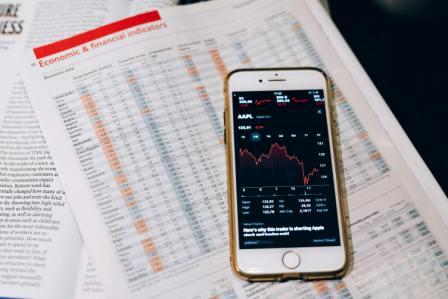Trading on News: How to Use Current Events to Your Advantage
In the fast-paced world of stock trading, news is one of the most powerful forces that can move markets. Whether it’s an economic report, a corporate earnings announcement, or a political decision, understanding how to leverage breaking news can give traders an edge. But how exactly do you turn current events into profitable trading opportunities?
This article will explore how to use news to your advantage when trading, highlight key strategies, and discuss the risks involved in news-based trading.
If you want to read same article in hindi click here
Why News Matters in Stock Trading
News can be a catalyst for sharp price movements, and it often acts as the trigger that causes stocks to surge or plummet in a short period. This is because news provides new information that changes how investors perceive a stock’s value.
For example, a company announcing a breakthrough product could send its stock soaring, while a poor earnings report or political uncertainty might cause a market-wide sell-off. Understanding how and when news impacts stock prices is key to making informed trading decisions.
Short-term vs. Long-term Impact of News

While some news may have an immediate effect on stock prices, other events can shape the market over a more extended period. For instance, a company reporting record profits could see its stock rise in the short term, but broader economic changes, like rising inflation, could affect its long-term performance.
By distinguishing between short-term price swings and long-term trends, traders can adjust their strategies accordingly.
Key Types of News that Influence Stock Prices
Economic Reports and Indicators
Economic reports such as GDP growth, unemployment rates, and inflation data can significantly influence stock prices. For instance, better-than-expected GDP growth can boost market sentiment and drive stock prices higher, while rising inflation might signal future rate hikes, which could negatively affect stock valuations.
Traders keep a close eye on these reports because they provide insights into the overall health of the economy, helping them decide whether to buy or sell stocks.
Corporate News and Earnings Reports
Corporate earnings reports are some of the most closely watched news events in the stock market. They offer a snapshot of a company’s financial performance and future outlook, and even minor surprises can cause big moves in stock prices.
Other corporate news, like mergers and acquisitions, product launches, or management changes, can also impact a stock’s price. For example, if a tech company announces a groundbreaking new product, investors might flock to buy its stock, expecting future growth.
Political News and Global Events
Political news, such as elections, trade policies, and regulations, often have ripple effects across industries and sectors. Global events like international conflicts, pandemics, or major treaties can also affect market stability, causing sudden shifts in stock prices.
For instance, when a country imposes tariffs on imports, companies reliant on those products might see their stock prices fall due to higher production costs.
Technological Advancements
The rapid pace of technological innovation creates opportunities and disruptions across industries. News of a breakthrough technology—like advances in artificial intelligence or renewable energy—can boost stock prices in the related sector, especially if the new technology is expected to revolutionize the market.
Strategies for Trading on News
Preemptive Trading Based on Expected News
One strategy traders use is to make moves before news is officially released. For instance, if there are rumors of an upcoming product launch or positive earnings report, traders might buy shares in anticipation of the stock rising once the news breaks. However, this strategy carries risk—sometimes the actual news may fall short of expectations, leading to losses.
Trading the News After It Breaks
Many traders prefer to wait for confirmed news and then react to the market’s response. This allows them to avoid the unpredictability of speculation and instead take advantage of the momentum created by the news. For example, if a company releases better-than-expected earnings, traders might buy the stock to capitalize on the post-news rally.
Day Trading vs. Long-Term Trading on News
Day traders thrive on news, quickly reacting to breaking events and profiting from short-term price swings. In contrast, long-term investors might use news to inform their broader strategy, focusing on economic indicators or corporate growth that will play out over months or years.
Tools to Help You Trade on News
News Feeds and Alerts
One of the most important tools for trading on news is real-time news platforms like Bloomberg or Reuters. These services offer news feeds and alerts that help traders stay ahead of market-moving events. Integrating these alerts into your trading strategy ensures that you never miss critical developments.
Sentiment Analysis Tools
Sentiment analysis tools help traders gauge the market’s mood by analyzing social media posts, news headlines, and commentary. By understanding the general sentiment surrounding a particular stock or market, traders can make more informed decisions.
Managing Risk When Trading on News
Volatility and News Sensitivity
Trading on news can be highly profitable, but it’s also risky. The market can react unpredictably to news, and prices may swing wildly. To manage this risk, traders often use tools like stop-loss orders to protect against steep losses, and they may limit their position size to minimize exposure to any single event.
Avoiding the Trap of Overtrading
One common pitfall in news-based trading is overtrading. Not all news is market-moving, and attempting to trade on every headline can lead to significant losses. It’s crucial to develop a filter and focus on only the most impactful news events.
Common Mistakes in News-Based Trading
Trading on Rumors, Not Facts
Trading based on rumors can be dangerous, as unverified information may not lead to the expected outcomes. To avoid this, traders should wait for confirmed news before making decisions. While rumors can create excitement, they often lead to volatile, unpredictable price movements.
Ignoring Broader Market Trends
While news is a powerful force in the stock market, it’s important to consider the broader market context. For example, a positive earnings report might be overshadowed by larger macroeconomic issues like rising inflation or a market downturn. Traders should combine news with technical and **fundamental
analysis** to get the full picture.
Conclusion
News is a dynamic and influential factor in stock trading, and learning how to use current events to your advantage can make you a more successful trader. By staying informed, using the right tools, and developing a well-thought-out strategy, you can capitalize on the market’s reaction to breaking news. However, always remember to manage your risk and avoid common pitfalls like overtrading or reacting to rumors.
How to Trade Stocks During Earnings Reports
FAQs
What types of news move the stock market the most?
Economic reports, corporate earnings, political decisions, and technological innovations tend to have the most significant impact on stock prices.
Is trading on news reliable?
Trading on news can be profitable but is also risky due to market volatility. It requires careful analysis and a solid strategy.
Can I trade stocks based on rumors?
While some traders speculate on rumors, it’s generally risky. It’s better to wait for confirmed news before making trades.
How fast should I react to breaking news?
Traders need to act quickly when news breaks, but it’s also essential to remain calm and analyze the potential market impact before jumping in.
What tools can help me trade on news?
Real-time news feeds, sentiment analysis tools, and financial platforms with news alerts are valuable resources for news-based trading.


2 thoughts on “Trading on News”